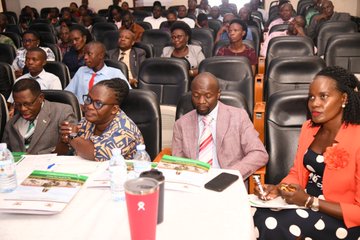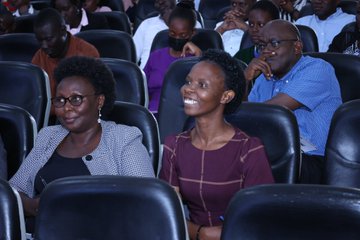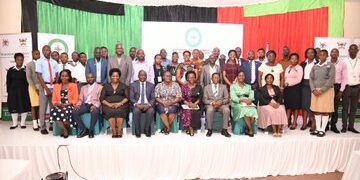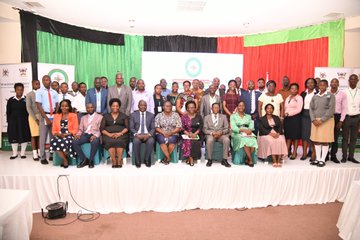Makerere University researchers have resorted to a music, dance, and drama innovative teaching and learning model to help teachers in lower secondary schools teach and boost the learners’ performance in mathematics.
“The situation analysis revealed inadequate performance in maths yet maths is very important in our lives. Maths is the driver of all Sciences,” said the Principal Investigator, Prof. Sylvia Antonia Tamusuza, during a dissemination workshop held at Makerere Food Science Conference Hall on Tuesday, June 25, 2024.
According to Prof Tamusuza, the Integrated Performing Arts in Teaching/Learning Mathematics in Lower Senior Secondary Schools in Uganda (IPATeLMaSS) model focuses on a positive attitude towards maths.
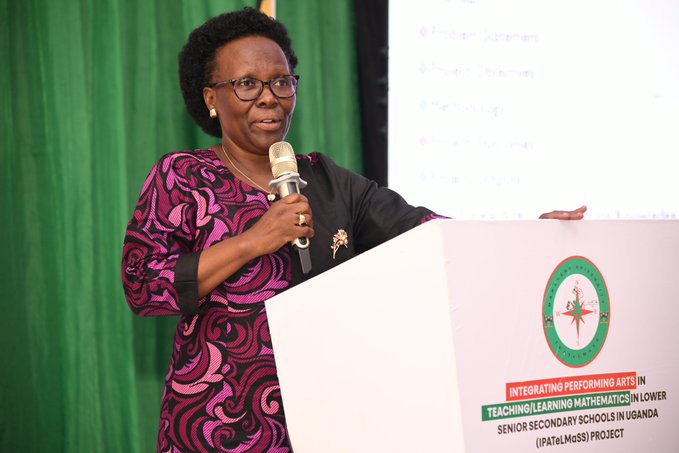
IPATeL is the Makerere University Research and Innovations Fund (Mak-RIF) project funded by the government of Uganda.
Prof Tamusuza and her team presented from research findings of the project: “Integrating the Performing Arts in Teaching/Learning Mathematics” in the presence of stakeholders like the National Curriculum Development Centre (NCDC), Mubende Army Secondary School and the Ministry of Education and Sports.
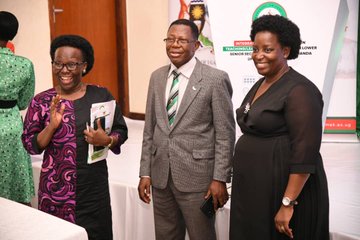
She said the model of integrating performing arts in the teaching of math, assures enhanced student engagement, improved comprehension, critical thinking, and memory retention of mathematical concepts.
“Policies must intentionally include performing arts activities in the teaching and learning of mathematics. There is a need to support ongoing research and evaluation of the effectiveness of arts-integrated maths education,” she recommended.
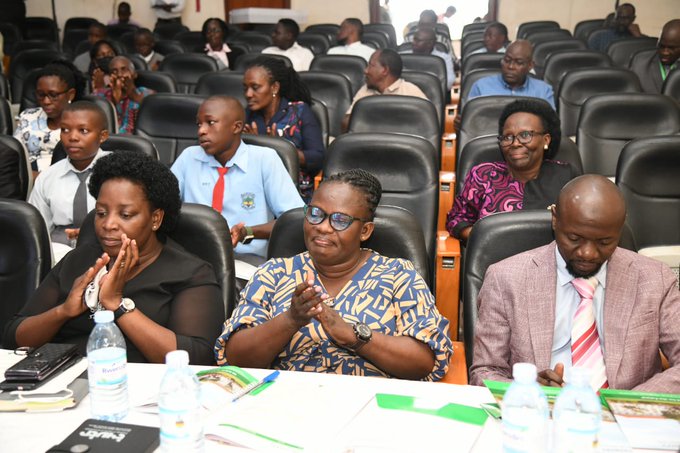
She added: “Teachers require specialised training to integrate performing arts into maths instruction. Policies should encourage partnerships between schools, and arts organisations to enhance arts-integrated education.”
Eng. Prof. Isa Kabenge, while representing the Chair at Mak-RIF, thanked the government of Uganda for providing funding to support such research. He affirmed that the Mak-RIF Grants Management Committee remains committed to solution-based projects that drive visible impact

Prof. Helen Nkabala, the Principal of the College of Humanities and Social Sciences (CHUSS), appreciated the research team for the project, which she said is a testament that the arts working together with sciences can make the world a better place.
“The 25th June 2024 Mak-RIF dissemination proves that the humanities working together with the sciences can make the world a better place,” she noted.
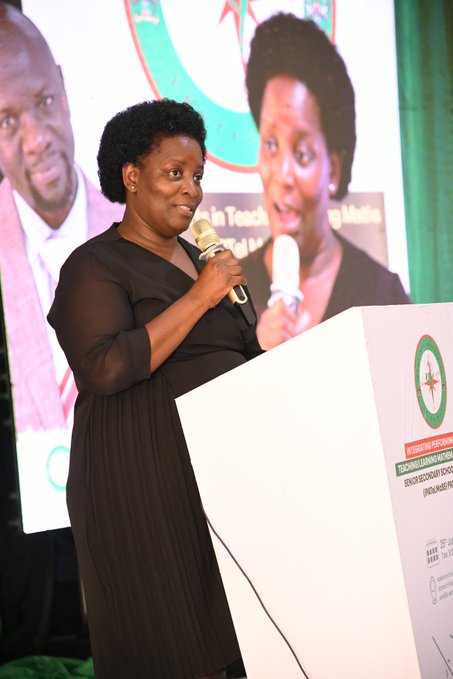
Hajji Ismael Mulindwa, the Director of Basic and Secondary Education at the Ministry of Education and Sports, who officiated as the Chief Guest at the IPATeLMaSS dissemination workshop, appreciated the research team for the model and pledged further support to innovative methods of teaching and learning.
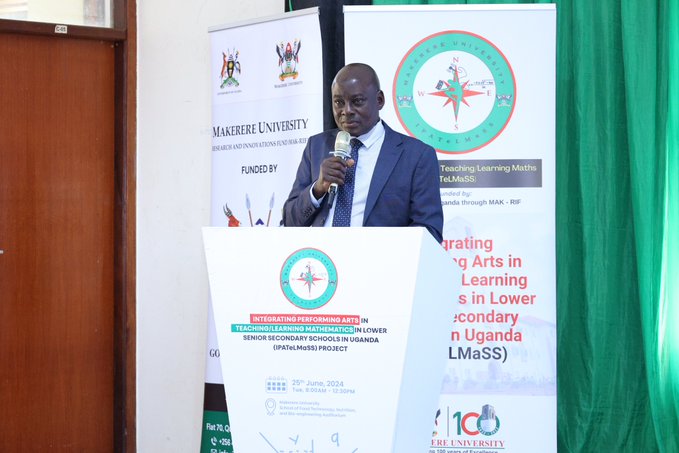
Hajji Mulindwa applauded the IPAMTeL model that integrates performing arts into the teaching of maths. “I encourage our schools to emulate Makerere to spice up maths.”
Dr Bernadette Nambi, the Deputy Director at NCDC- in charge of academics and materials development, in her keynote address, emphasized the need to empower learners by tapping into their experiences.
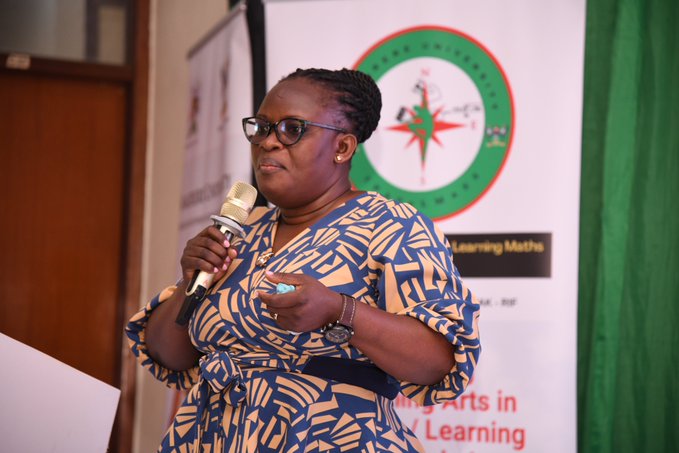
“Let students’ own stimuli shape the learning process,” noted Dr. Nambi.
Dr Dominic Makawa, a team member on the project provided an overview of the project and noted that the main goal was to develop an integrated model of Learning that improves student engagement and understanding of Mathematics through creative and interactive approaches.
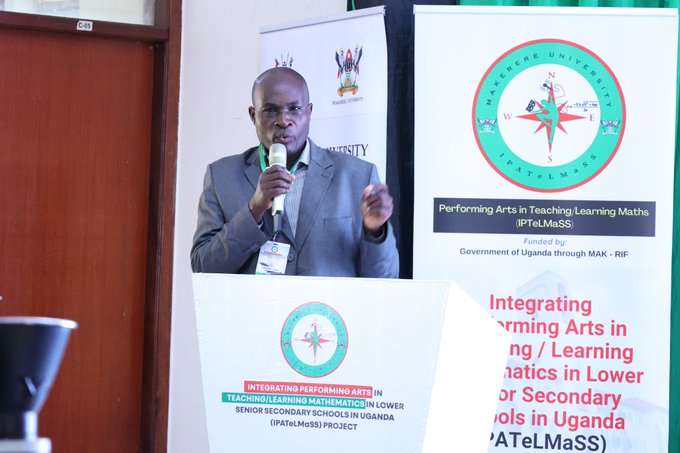
Learners from Mubende Army S.S. appreciated Makerere University for integrating performing arts into the teaching of maths, which has made learning enjoyable.
“We were given a chance to make our own songs, this helped us to keep remembering the mathematical concepts. We could attend these sessions because they were fun and exciting. With this format of teaching as students we are often energized all through the lesson,” said Ivan Asianzu who represented learners.
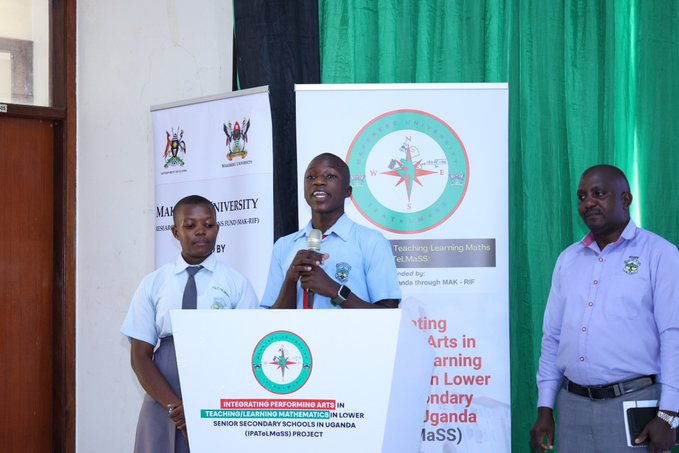
The learners stated that participating in the research and training proved to them that maths can be taught anytime (morning or afternoon hours). “Previously, we thought maths was so hard, that it could only be taught in the morning hours.”
